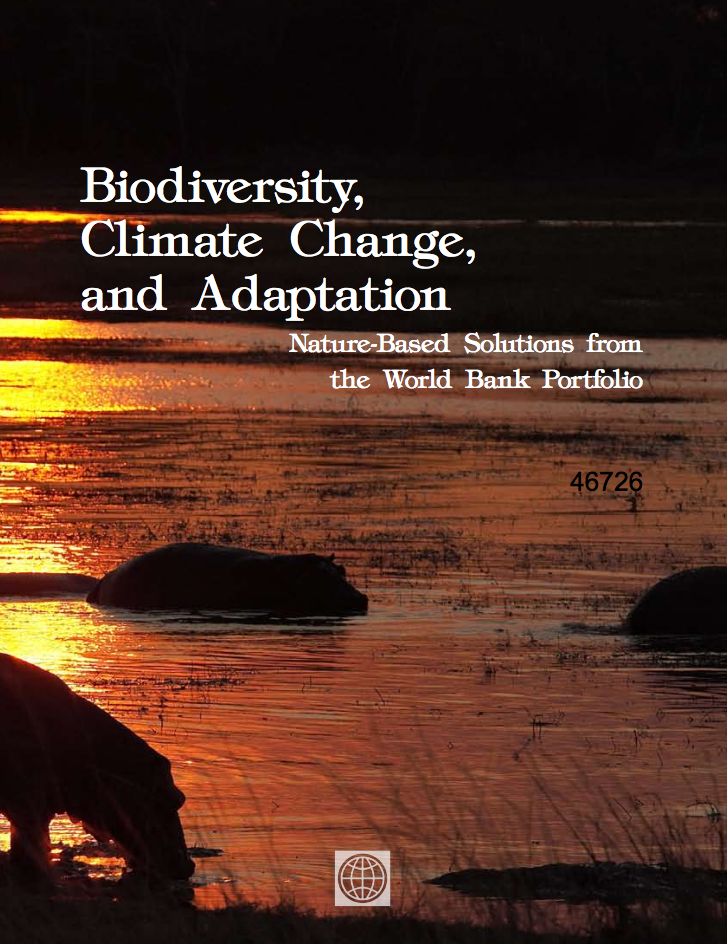The World Bank is a vital source of financial and technical assistance to developing countries around the world. We are not a bank in the ordinary sense but a unique partnership to reduce poverty and support development. The World Bank Group has two ambitious goals: End extreme poverty within a generation and boost shared prosperity.
- To end extreme poverty, the Bank's goal is to decrease the percentage of people living on less than $1.25 a day to no more than 3% by 2030.
- To promote shared prosperity, the goal is to promote income growth of the bottom 40% of the population in each country.
The World Bank Group comprises five institutions managed by their member countries.
The World Bank Group and Land: Working to protect the rights of existing land users and to help secure benefits for smallholder farmers
The World Bank (IBRD and IDA) interacts primarily with governments to increase agricultural productivity, strengthen land tenure policies and improve land governance. More than 90% of the World Bank’s agriculture portfolio focuses on the productivity and access to markets by small holder farmers. Ten percent of our projects focus on the governance of land tenure.
Similarly, investments by the International Finance Corporation (IFC), the World Bank Group’s private sector arm, including those in larger scale enterprises, overwhelmingly support smallholder farmers through improved access to finance, inputs and markets, and as direct suppliers. IFC invests in environmentally and socially sustainable private enterprises in all parts of the value chain (inputs such as irrigation and fertilizers, primary production, processing, transport and storage, traders, and risk management facilities including weather/crop insurance, warehouse financing, etc
For more information, visit the World Bank Group and land and food security (https://www.worldbank.org/en/topic/agriculture/brief/land-and-food-security1
Resources
Displaying 3776 - 3780 of 4907Estimating Global Climate Change Impacts on Hydropower Projects : Applications in India, Sri Lanka and Vietnam
The world is faced with considerable
risk and uncertainty about climate change. Particular
attention has been paid increasingly to hydropower
generation in recent years because it is renewable energy.
However, hydropower is among the most vulnerable industries
to changes in global and regional climate. This paper aims
to examine the possibility of applying a simple vector
autoregressive model to forecast future hydrological series
Biodiversity, Climate Change, and Adaptation : Nature-Based Solutions from the World Bank Portfolio
Climate change is a serious
environmental challenge that could undermine the drive for
sustainable development. Since the industrial revolution,
the mean surface temperature of earth has increased an
average of 1degree celsius per century due to the
accumulation of greenhouse gases in the atmosphere.
Furthermore, most of this change has occurred in the past 30
to 40 years, and the rate of increase is accelerating, with
Republic of Yemen - Poverty Assessment
From what was historically known as
'Arabia Felix', a land of prosperity and
happiness, Yemen has become the most impoverished among the
Arab countries. The government of the united Yemen, formed
in 1990, has launched so far three five-year economic reform
plans with the goal of restoring Yemen's prosperity.
Have these efforts succeeded? What policies are needed to
further reduce poverty? The poverty assessment report aims
Natural Disaster Risk Management in the Philippines : Enhancing Poverty Alleviation Through Disaster Reduction
The Philippines by virtue of its geographic circumstances is highly prone to natural disasters, such as earthquakes, volcanic eruptions, tropical cyclones and floods, making it one of the most disaster prone countries in the world. This report seeks to document the impacts of natural disasters on the social and economic development of the Philippines; assess the country's current capacity to reduce and manage disaster risk; and identify options for more effective management of that risk.
Global Agricultural Trade and Developing Countries
This book explores the outstanding
issues in global agricultural trade policy and evolving
world production and trade patterns. Its coverage of
agricultural trade issues ranges from the details of
cross-cutting policy issues to the highly distorted
agricultural trade regimes of industrial countries and
detailed studies of agricultural commodities of economic
importance to many developing countries. The book brings







